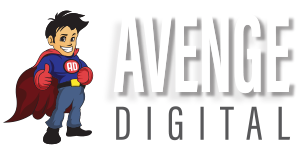
 Insurance is a huge industry, and one that gets some of the most search requests online. Most agency owners and entrepreneurs start their agency with a bunch of ideas and energy. But the agency owner usually has one focus on why they got into insurance, usually a personal connection that helped them make the leap.
Insurance is a huge industry, and one that gets some of the most search requests online. Most agency owners and entrepreneurs start their agency with a bunch of ideas and energy. But the agency owner usually has one focus on why they got into insurance, usually a personal connection that helped them make the leap.
While many times team members disagree on which product should receive most of the focus, almost all agency owners know at some point lead generation in one form or another is part of the equation. That being said, basing the decision on what their “gut” tells them may not be the best approach when considering vendors and product types.
And that’s where we come in.
Products in the insurance industry may vary but the concepts are the same. You need to understand the parameters around each product and the value that each one brings. When you use the same metrics and compare them side-by-side, it allows for a non-emotional way to determine your path forward.
Here are some of the calculations that you need to do.
How many?
You need to come up with a realistic assessment of how many policies you need to sell. And not just this year, but for the next several years.
Sometimes this involves figuring out how big a market could be that doesn’t yet exist on your books. Other times, its about determining what is a realistic piece of an existing pie.
In our industry, it all revolves around consumer data. Looking at the types of consumers that fit the types of products your agency offers. Is the market growing? Is it declining? Why? Who else could provide insurance to these customers, and are you willing to lose out on potential business if the consumer doesn't match your "competitive advantage"?
Take all the data you have right now. It could be very granular, it could be back-of-the-envelope. And figure out what the sales expectations will be going forward. Try not to base your decision on what you want the product to do but based off what is likely in your market.
How much?
There might not be anything out there like what you have. Or, you might be building a better mousetrap. Find out what everything costs and how much people are paying for it. Come up with a product that is right for your consumer. Of course you always are going to compare apples to apples when it comes to insurance, however providing other options that might be more beneficial for your client opens the door to you being the trusted advisor. Will that price go up after renewal? Will it come down? What typically happens in your market?
Your pricing analysis needs to be layered on top of your cost of leads. How much does it cost to close a policy? Will it cost more or less as you scale? Your budget should not dip below this — at least not for very long.
When can you launch?
Be realistic. Are your timelines are too optimistic? With any business, its always better to “under promise and over deliver.”
I have seen so many agency owners underestimate launch timelines, due to staffing or technological needs, or even advanced sales and insurance training. This can have devastating effects on a business. Especially one that is not flush with cash. Take some time with this one. Just because you need to get leads coming in does not mean that your team is ready to process them. Teaching them the process of selling over the phone, regardless of product, is what makes or breaks agencies.
What’s the upfront investment?
This is a big one in insurance because it can be based off the goals you set for your team. So the product needs to cover its own costs after a certain period of time.
Make sure you have planned out exactly how much you’ll need for your break even and profitable goals. Marketing, sales, training and development. Will you need to hire more people?
Compare Them All And Make A Decision
It isn’t romantic or exciting to make a decision this way. I have received a lot of pushback about the results from agency owners. Inversely, I have also heard tremendous praise from many agencies over the years for help in teaching them how to be more successful with their marketing. Some of it is luck, some of it is talent, but every single success story I hear has two common factors: drive and determination. Agency owners who persevere and work to find opportunity, even when it seems like there aren't any are the ones who see success.
Sometimes the agent or producer still picks their favorite lead product. Having the ability to tweak some things in the plan, whether it's changing product types, or sales style, to make it more workable, more profitable, more valuable.
Sometimes, the cold hard facts (plus a push from your hungry sales team) are enough to sway the path.
No matter what the outcome. You agency will be on a much better path to success with this analysis.
Agency owners already deal with a fair amount of "drama" working with the general public and often times emotions run high, especially when money is on the line. There is a lot at stake. Try to take some of the drama out of this big, important decision. Use metrics, not emotion. Your agency will be all the better for it.






